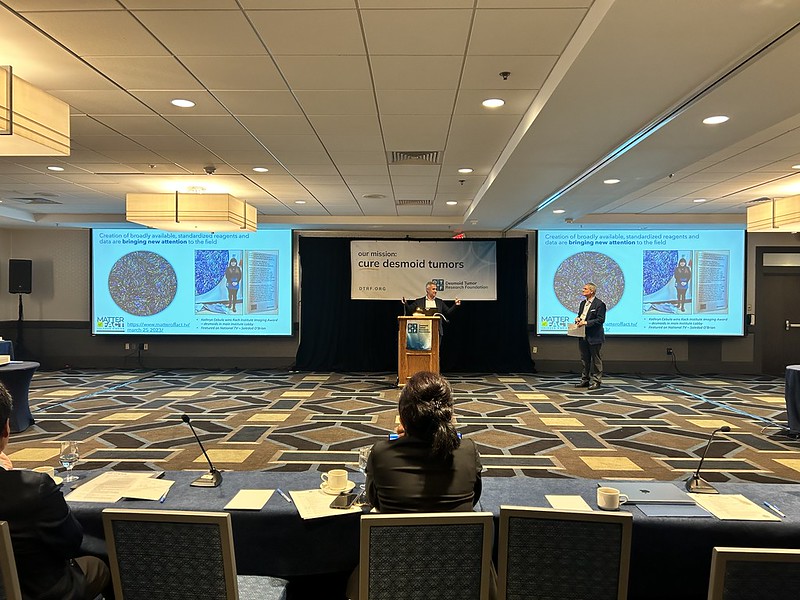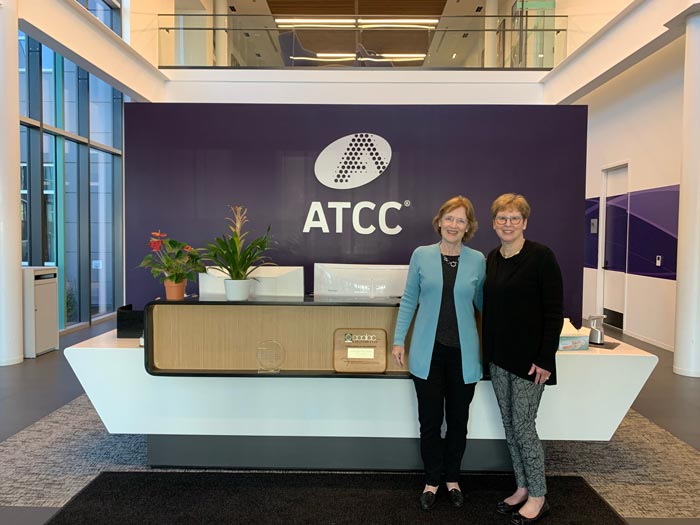Advancing Desmoid Tumor Science
The DTRF funds research that will advance current scientific knowledge about desmoid tumors, moving toward the development of new treatment options and bringing us closer to our ultimate goal of a cure for each and every patient with a desmoid tumor. Typically, the Foundation is particularly interested in innovative and translational research projects and will consider applications across the spectrum of research from basic science to clinical trials and correlative studies.
The 2025 grant cycle is currently closed. Please revisit this page in 2026 for more information.

Application Information
NOTES:
- The Desmoid Tumor Research Foundation (DTRF) does not fund indirect costs associated with awarded grants.
- The DTRF will be accepting grant applications only in the area set out in the 2025 targeted RFP details below.
2025 Targeted Request for Proposals
See details and requirements below.
2025 Targeted Request for Proposals on Spontaneous Regression in Desmoid Tumors
Timeline and Requirements:
- LOI due: May 14, 2025 by 11:59PM ET
- LOI requirements: See page 5
- LOI notification: May 20, 2025
- If LOI is accepted, full application due: June 15, 2025 by 11:59PM ET
- Format for Full Targeted Applications: See page 5
- Award notification: August 15, 2025 (subject to change)
- Project start date: September 1, 2025 (estimated)
Background
Desmoid tumors (also known as aggressive fibromatosis) are locally invasive soft tissue tumors characterized by unpredictable clinical behavior. While some tumors demonstrate aggressive growth requiring surgical or medical intervention, others remain stable or undergo spontaneous regression without therapy. The basis for this regression remains poorly understood. Understanding the mechanisms underlying spontaneous regression could provide critical insights into tumor biology, improve nomination for clinical intervention, and can lead to novel therapeutic strategies that mimic or induce this process.
Purpose
This RFP invites proposals that seek to investigate the factors contributing to spontaneous regression in desmoid tumors. Proposals that foster cross-disciplinary teams are strongly encouraged. The proposals can focus on any discipline, and as examples proposals could explore:
- Molecular or cellular changes associated with regression or stable disease
- Immune system and stroma involvement in tumor behavior
- Transcriptional and epigenetic profiles of regressing versus progressing tumors
- Biomarkers predictive of regression or progression
- Development of preclinical models to study spontaneous regression
- Systems biology or computational approaches to model regression
- Longitudinal clinical or imaging data to identify features of spontaneous regression, with a clear link to underlying biology
- Host/tumor interactions
See full Targeted RFP guidelines and application format here.
Forms for Reports (For Current Grantees)
DTRF Progress Report Requirements

Desmoid Cell Line at ATCC
Publicly available desmoid tumor immortal cell lines are now available for purchase at ATCC, a public biorepository based in Manassas, VA. These tumor-derived models can be used in basic research as well as pharmacological screening applications. Detailed information about these models can be found on the ATCC website and on the HCMI website. Discounted pricing is available to academic researchers.
Continue Exploring

Clinicians & Researchers Newsletter
Receive monthly updates about treatment advances, grant applications, clinical trials, CME opportunities, and more.
